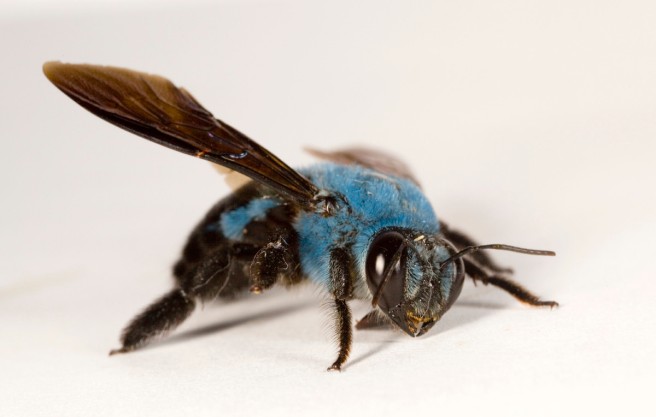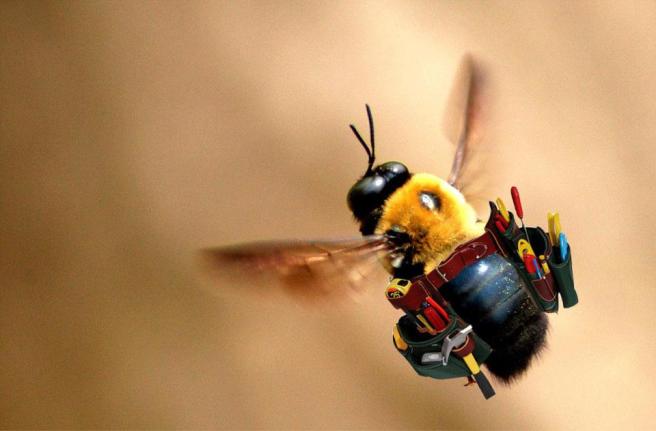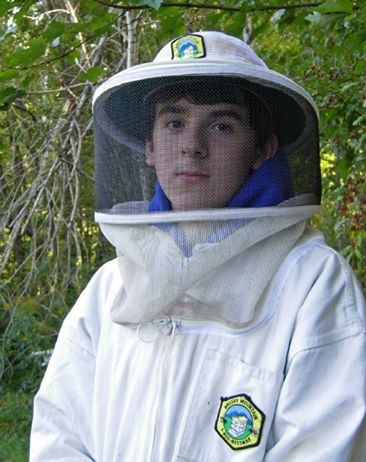I love bees. I’ve been beekeeping since I was about 13, from basics of collecting honey to installing hives. While I don’t do it as much as I would like to, I still have that passion for bees. There are tons of different kinds of bees from Carpenter Bees to Sweat Bees. Let alone the different type of honey bees that there are; Italian, Russian, African and so on. They are a huge part of our ecosystem. Yes, that tiny insect you see float around and that you are probably terrified of since it might sting you. Bees are the top pollinators for agriculture. About 33% of any food you eat is somehow affected by a honey bee pollination. 75% of all fruits, vegetables, nuts in the U.S are pollinated by bees. Depending on the crop as well, like almonds, it could be entirely dependent on honey bee pollination.

Now why am I telling you about all these facts and why bees are so important? Well, there is a crisis in the United States that luckily has gotten more and more attention as the years go by. Honey bees are struggling to get by. While it is a usual thing that some colonies won’t survive the winter or some third party gets involved(Those pesky animals), more and more colonies have been dying due to Colony Collapse Disorder. Yes, it is exactly what it sounds like. CCD has led to almost double the rate of loss. Weirdly enough, it seems to be more of an issue in the United States than anywhere else in the world. Why is that? Well, it could be a variety of reasons from new kinds of mites to climate change. Could be a mix of all the above as well! My personal opinion would lead in more of the direction of pesticides. Many countries in Europe have started to push to banning pesticides that are shown to affect bee population. Luckily, the US Government has started to follow way and started to investigate and ban pesticides. Pesticides are the new factor. Viruses, parasites, winter and all those variables have been around and bees have been able to deal with it. Either way, whatever the issue may be, it needs to be solved.

How can we deal with this? Luckily, the United States Department of Agriculture has had this as a focus for many years. Recently they released a strategy to help improved honey bees and other pollinators. Their three top goals are to reduce loses in winter of honey bees, increase monarch butterfly population, and increase pollinator habitats.
What can YOU do though to help?
- Plant more flowers!
- Stop using those pesticides!
- Buy some local honey(Trust me, it’s way better).
- Spread the word!

Nicely done! It’s crazy to think that CCD has grown due to our own faults. As you were saying these faults lie primarily with pesticide use. I hope that we can find a fix to this issue before it’s too late. It would be nice to get some farming regulation put in place in the United States that protect the Bee.
As for now, I know I’ll continue to buy local honey, it helps me so much with allergies.
LikeLiked by 1 person
I adore honeybees for sure! I am so glad that you have brought your passion for beekeeping into this post. The decline of bee populations is definitely of major concern. I also love especially investigating the eusocial structure of Hymenopteran insect colonies such as bees. Seems crazy that there is such a system where most of the worker female bees never reproduce themselves but raise the queen’s offspring. How could this have evolved? What can you find out about that?
(Note: Make sure you properly attribute your photos. See the canvas module on embedding photos and creative commons).
LikeLike
I really love this post! I am pretty passionate about bees (not a beekeeper, but its something I would to try), and I think that – while it is a topic that is finally getting air under its wings – it needs to keep being discussed. I think you offer a lot of really great, basic information that fills in any information gap(s) that people may have. You open the opportunity for people to take your post and expand on it through other research in areas of their interest (i.e. all the different species of bees or how pesticides vs. nature have an effect on their survival). I also really, really appreciate you adding some simple steps that anyone can take to help save the bees! Awesome job!!
LikeLiked by 1 person
Thanks for that! They are very vital to the ecosystem and I’m glad that you share the same passion that I do!
LikeLiked by 1 person
I love this post a lot! I don’t personally keep bees but I have a lot of family who do. I think your post has a lot of potential to expand via research areas! The steps you provide are awesome for anyone to learn how to start saving bees.
LikeLiked by 1 person
It’s a great hobby for sure, it’s definitely worth looking into sometime!
LikeLiked by 1 person